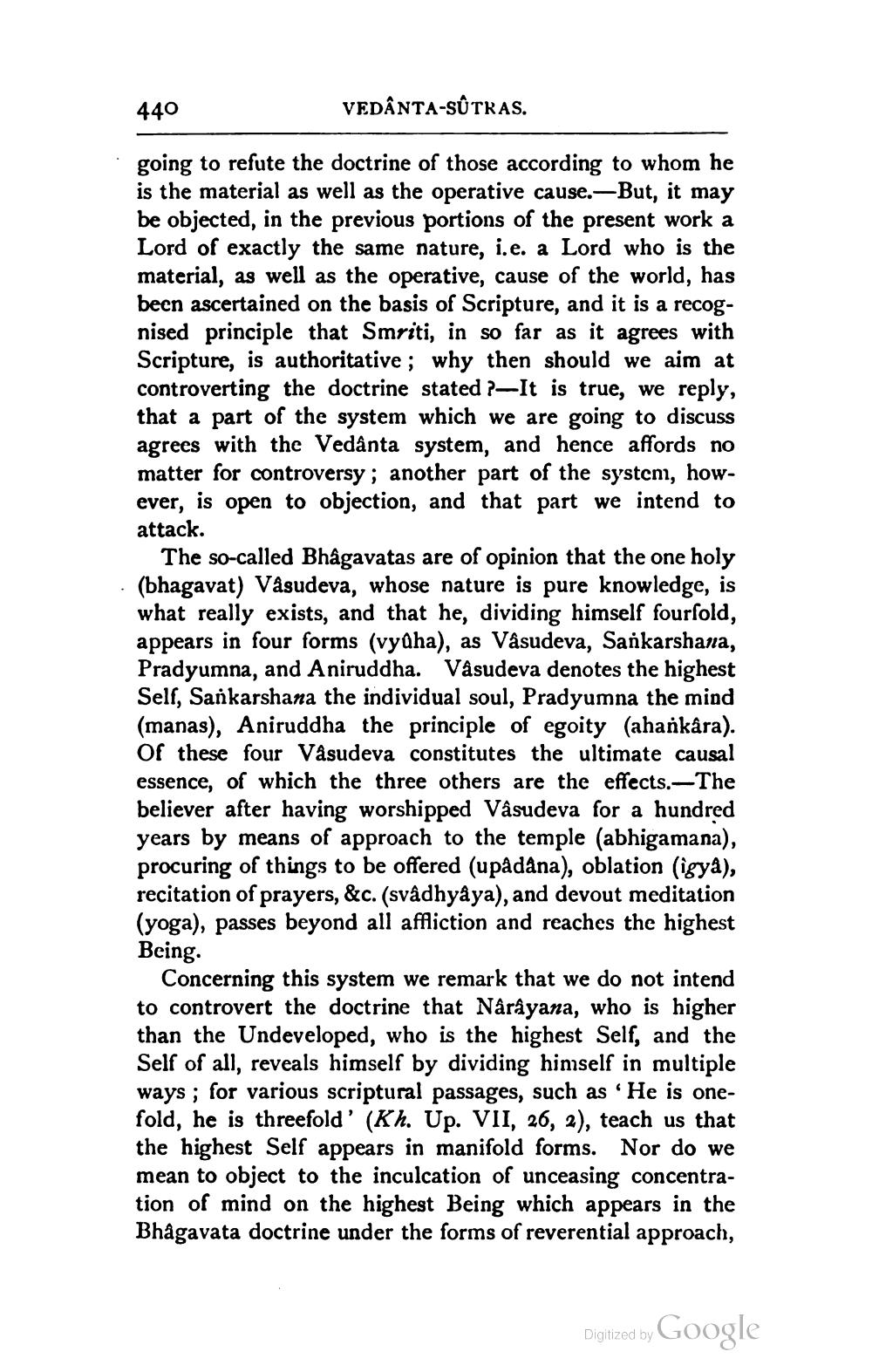________________
440
VEDÂNTA-SÛTRAS.
going to refute the doctrine of those according to whom he is the material as well as the operative cause.—But, it may be objected, in the previous portions of the present work a Lord of exactly the same nature, i.e. a Lord who is the material, as well as the operative, cause of the world, has been ascertained on the basis of Scripture, and it is a recognised principle that Smriti, in so far as it agrees with Scripture, is authoritative ; why then should we aim at controverting the doctrine stated ?—It is true, we reply, that a part of the system which we are going to discuss agrees with the Vedanta system, and hence affords no matter for controversy ; another part of the system, however, is open to objection, and that part we intend to attack.
The so-called Bhagavatas are of opinion that the one holy (bhagavat) Vasudeva, whose nature is pure knowledge, is what really exists, and that he, dividing himself fourfold, appears in four forms (vyúha), as Vasudeva, Sankarshana, Pradyumna, and Aniruddha. Vasudeva denotes the highest Self, Sarkarshana the individual soul, Pradyumna the mind (manas), Aniruddha the principle of egoity (ahankara). of these four Vasudeva constitutes the ultimate causal essence, of which the three others are the effects. The believer after having worshipped Vasudeva for a hundred years by means of approach to the temple (abhigamana), procuring of things to be offered (upâdana), oblation (igyà), recitation of prayers, &c. (svadhyâya), and devout meditation (yoga), passes beyond all affliction and reaches the highest Being.
Concerning this system we remark that we do not intend to controvert the doctrine that Narayana, who is higher than the Undeveloped, who is the highest Self, and the Self of all, reveals himself by dividing himself in multiple ways; for various scriptural passages, such as 'He is onefold, he is threefold' (Kh. Up. VII, 26, 2), teach us that the highest Self appears in manifold forms. Nor do we mean to object to the inculcation of unceasing concentration of mind on the highest Being which appears in the Bhagavata doctrine under the forms of reverential approach,
Digized by Google




